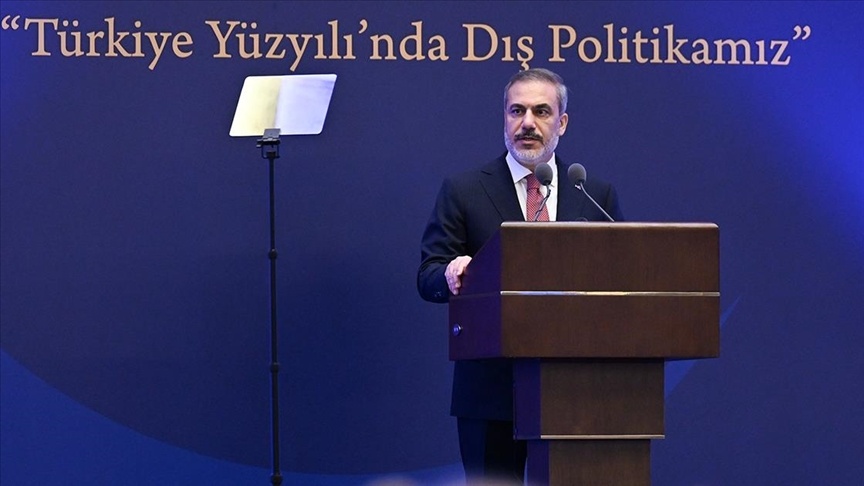by Okan Müderrisoğlu
We opened the week with impressions from the 14th Ambassadors’ Conference and hints about the new management style of Foreign Minister Hakan Fidan. Let us continue from this perspective and approach the subject from the “security-intelligence” dimension. Let us continue by stating that the meeting moderated by Mr. Fidan was attended by Yaşar Güler, Minister of National Defense, Ali Yerlikaya, Minister of Interior, İbrahim Kalın, Head of National Intelligence Organization (MIT) and Haluk Görgün, Head of Defense Industry.
Let us analyze the “Security in the Turkish Century” panel through the good news that a chronic problem of the state has been overcome.
It would not be a mistake to say that the last century of the Turkish state tradition has been marked by institutional rivalry and bureaucratic chauvinism. The area where this rivalry, which has been going on in overt and covert waves, was most visible and the cost to the nation was mostly in intelligence-security policies.
In addition to the Turkish Armed Forces, there was a serious divergence between the National Intelligence Organization, the Turkish National Police (especially its intelligence) and the Gendarmerie General Command (especially its intelligence unit). Intelligence sharing was limited and forced, with one organization disliking and even blaming the other.
We are pleased to learn that there is full coordination between internal and external security organizations. Everyone’s job description and cooperation framework have been clarified. No one has been able to encroach on the domain of the other. Simultaneous information sharing is also based on clear rules. Without any institutional prejudice, the security unit that obtained any data or intelligence started to directly transfer it to the relevant institutions. Thus, information that may be considered routine for one organization could complete the pieces of a critical picture for another and produce vital results.
***
The impact of the messages given to ambassadors through the harmony between the institutions that make a state a state should also be emphasized here.
For example…
Despite the “claim that the borders have turned into a jungle”, multi-layered and technological border security measures were explained on a map.
Or…
Referring to the strategy of eradicating terrorism at its source… It was once again noted that the struggle inside and outside the borders will continue with determination until terrorism is reduced to zero.
Cyber security has been given a special title. The importance of raising awareness and taking measures in both the public and private sectors was reminded.
Minister Yerlikaya’s statement that the identity information and fingerprints of asylum-seekers under temporary protection are in the records of the state and the effectiveness of mobile centers established to detect illegal immigrants were also found interesting.
***
With this occasion…
It would also be useful to say a few words about the relationship between Mr. Fidan and his successor Mr. Kalın. MİT Director Kalın’s statement that he “inherited an extraordinary legacy in the organization and will work to raise the bar to the next level” is both remarkable and rare in our state life…
It should also be noted that Minister Fidan praised İbrahim Kalın, saying, “In addition to the honor of being appointed as the Minister of Foreign Affairs, I was wondering who would take over this great work (the head of intelligence) after me, and I was pleased to hear the name İbrahim Kalın.”
And let’s come to the humorous moments of that meeting…
Minister Fidan said, “Some of our ambassadors may think (about me) that MİT is coming out of me. But I will always maintain my role as Foreign Minister and diplomat!”
And one last note…The Mevlüt Çavuşoğlu era was a unique process in terms of nationalizing our foreign policy, making it national and resilient to external shocks. As for the Hakan Fidan era, it is a candidate to be a period in which results commensurate with the transformation of the institutional structure, data-target-oriented diplomacy, rapid adaptation to multi-centered and multi-interest global developments and the goal of a leading country are achieved.
Source: Sabah






